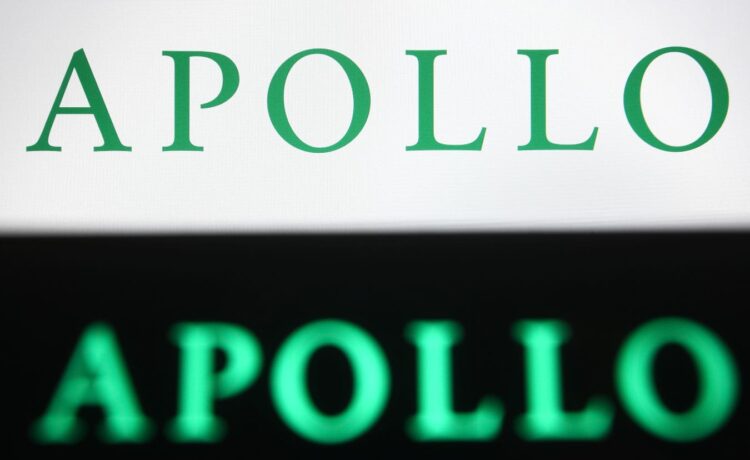Apollo Global Management’s first tokenized fund is focused on Wall Street’s hot private credit … [+]
In another step toward integrating blockchain technology with TradFi, Apollo Asset Management, a $733 billion alternative asset manager, announced the launch of a tokenized private credit fund. One year ago, Wall Street was focused on the launch of Bitcoin spot ETFs. Today, Apollo tapped into two of the hottest topics on the Street and digital finance, private credit and tokenization of real-world assets (RWA) with its announcement of an exclusive partnership with Securitize to distribute a tokenized version of its $1.2 billion Apollo Diversified Credit Fund.
The Fund
The Apollo Diversified Credit Securitize Fund (ACRED) will offer on-chain investors access to a vehicle with an investment thesis focused on five pillars: Corporate Direct Lending, Asset-Backed Lending, Performing Credit, Dislocated Credit, and Structured Credit.
Since inception, Apollo Diversified Credit Fund Class A Shares have boasted a 9.02% annualized distribution rate. As of the end of Q3, 2024, the fund was invested in a portfolio of 158 companies and had an average duration of 1.7 years.The fund is managed by seasoned fixed income and leveraged loan investors, Earl Hunt, Jim Vanek, and Chris Lahoud.
Tokenization Of The Fund
Christine Moy leads Apollo’s Digital Assets, Data & AI strategy.
The tokenized fund is the first for Apollo. In a LinkedIn post, Christine Moy, Apollo’s Head of Digital Assets, Data & AI, said, “Tokenizing Apollo’s products is just the beginning. We believe that crypto and DeFi will expand access to institutional-quality products, delivering improved, frictionless client experiences.”
Securitize, Apollo’s exclusive tokenization and distribution partner, will offer the fund on several blockchains including Aptos, Avalanche, Ethereum, Ink, Polygon, and Solana. The fund marks the first integration for Securitize with the Solana blockchain and Ink, a brand new layer-2 network built by Kraken.
Solana’s January momentum has been bolstered by a tremendous uptick in trading, the refiling of spot … [+]
The inaugural integration for Solana caps a month of positive new for the network, which doubled its supply of stablecoins, a key indicator of increased activity in individual cryptocurrency and token transactions as well as decentralized finance (DeFi) trading.
Early Tokenization Efforts
Seen as an avenue for simplifying the investment process, enhancing liquidity, and broadening investor access to previously inaccessible markets, tokenization has been experimented with by several asset managers in the field.
While early blockchain pioneers have been pondering the topic for almost 10 years, the tokenization … [+]
Blockchain enthusiasts have explored the tokenization of RWA for years. Early pioneer, Securrency, was founded in 2015 with a founding thesis that financial assets and markets would benefit from transparency and immutability that blockchain technology could provide investors. This would establish the provenance of any asset investors traded, ensuring its origin and authenticity.
Securrency was eventually acquired by a TradFi mainstay, the Depository Trust & Clearing Corporation (DTCC) in October 2023. DTCC is known for the post-trade market infrastructure it provides the global financial system.
Tokenization of Real World Assets (RWA)
While not the first fund tokenization by an asset manager, Apollo’s foray into the space underscores the growing chorus of acceptance of blockchain and digital asset technologies in the institutional investment community.
Jenny Johnson, Franklin Templeton’s CEO, believes all mutual funds and ETFs will one day be on a … [+]
Franklin Templeton, a U.S.-based global investment manager with $1.7 trillion in assets under management is credited with launching the first U.S.-registered fund to use a public blockchain to process transactions. The Franklin OnChain U.S. Government Money Fund (FOBXX) was launched in 2021 and made available to Benji wallet holders. One BENJI token, represented an on-chain investment in one share of the fund.
TradFi asset managers have tokenized a number of different types of funds. Apollo’s latest entry … [+]
In 2022, Hamilton Lane (HLNE) partnered with Figure to launch the first tokenized private markets-focused funds on the Provenance Blockchain. The underlying asset in Hamilton Lane’s inaugural effort was their $3.22 billion Private Assets Fund, a ‘40 Act registered investment fund.
Figure CEO, Mike Cagney, conversant in TradFi and blockchain has been involved in cutting edge … [+]
Figure, has been on the cutting edge of tokenization, and is often connected to high-profile projects in the space. The company, led by CEO Mike Cagney, who has deep TradFi roots himself, was selected as NovaWulf Digital Management’s technology partner in the Celsius Network reorganization.
The NovaWulf and Figure partnership proposed the tokenization of the reorganized company’s common equity. Ultimately, management of Celsius’ reorganization was awarded to Fahrenheit Holdings, a group led by Arrington Capital and U.S. Bitcoin Corp., a crypto mining company
The tokenization of intangible assets, like trademarks is being explored. Hermes International won a … [+]
In addition to financial assets, industry experts have explored the tokenization of intangible assets including art, music and patents.
The Future of Tokenization
Comments made by Apollo and Securitize highlight the focus on future collaboration between TradFi and digital financial technology firms.
“This partnership and launch with Securitize is an exciting milestone in our journey to make private markets more accessible and efficient, including Apollo Diversified Credit Fund which offers diversified exposure to a range of corporate and asset-backed credit,” said Earl Hunt, Apollo Partner and President of Apollo Diversified Credit Fund.
Carlos Domingo, chief executive officer of Securitize Inc.
“The next wave of demand for tokenized assets has emerged around fixed income, including private credit,” said Carlos Domingo, Co-founder and CEO of Securitize. “Apollo’s expertise in private credit makes them an ideal partner in tokenizing this category of real-world assets (“RWA”), unlocking broader opportunities for investors.”
What Next?
While both Hunt and Domingo point to the exposure of a broader range of assets for investors, it is important to note that ACRED, ironically, will only be available to accredited investors. Accredited investors will either have a net worth, excluding their primary residence, of at least $1 million, make at least $200,000 in each of the past two years, or $300,000 combined with a spouse, or be an investment professional in good standing holding current FINRA licenses.
This highlights another concern raised by technology leaders. While advancements in technology have put investments in reach for more investors, financial services regulations restrict investor participation in “sophisticated” financial products in the name of consumer protection.
Financial services regulation must keep pace with fintech development in order for investors to … [+]
In a LinkedIn post earlier today, Christopher Perkins, President of Coinfund, a leading cryptocurrency and blockchain investment firm pointed out, “ Under the Gensler SEC, memecoins enjoyed regulatory clarity and tokens with utility were attacked and restricted. So, while retail could freely trade memes, they were denied access to tokens with utility and sophisticated traditional finance products across private markets.”
The signing of the Executive Order to strengthen U.S. Leadership in Digital Financial Technologies signals a willingness to further invest in these technologies. In order for the benefits of these advancements to proliferate, however, the political will to bolster common-sense regulation in financial services is equally important.





